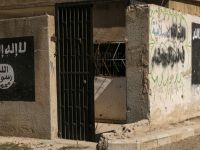Nigerian President Olusegun Obasanjo said on February 27th that his government would continue with its controversial plan to deregulate the country’s downstream oil sector, despite strong opposition from labor groups.
Obasanjo indicated that the West African government could no longer afford to subsidize gasoline prices. He said that: “At the moment, the price at which oil is being sold is not the cost price plus profit but artificially suppressed.”
The government has said that fuel subsidies cost the OPEC producer nearly $2 billion a year and that deregulation would end the subsidy and boost private participation in fuel supply and distribution.
Labor groups have threatened strikes if the government pushes ahead with its plan, after the nation had in June been crippled by protests over fuel prices.
Obasanjo has said that deregulating the downstream sector is the solution to ending long-running fuel scarcities, which have forced Nigeria to rely on costly fuel imports.
As severe gasoline shortages have entered their sixth week, a two-day parliamentary hearing was launched on February 27th to find a lasting solution to the country’s fuel crisis.
Obasanjo also indicated that the country was in sore need of private investment in its ailing oil refineries, which have been running well below their combined nameplate capacity of 445,000 b/d.
The Nigerian president had promised to privatize the four domestic refineries in the first part of 2001, after an earlier postponement, but this process has now been pushed back by up to a year.
© 2001 Mena Report (www.menareport.com)







